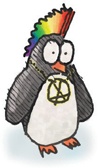Chapter 6. Different Fun for Different Folks

We all know that people learn at different rates and in different ways. Some of these differences manifest at a very early age.* Some people visualize things when they think of them; others are more verbal. Some people employ logic readily; others rely on leaps of intuition. We still wrestle with how to apply this knowledge to education.* We’re all familiar with the bell curve distribution of IQ,* and we’re also familiar with the fact that IQ tests do not measure all forms of intelligence. Howard Gardner* said there were in fact seven forms:
Linguistic
Logical-mathematical
Bodily-kinesthetic
Spatial
Musical
Interpersonal
Intrapersonal (internally directed, self-motivated)
There aren’t really standardized tests for these other types of intelligences (nor is this list authoritative!). Certainly the list suggests right off the bat that different people will be interested in different sorts of games because of their natural talents. People are not likely to tackle patterns and puzzles that appear as noise to them; they’ll tend to select problems that they think they have a chance at solving. Hence the folks with bodily-kinesthetic intelligence might gravitate towards sports, whereas the linguistic folks may end up with crossword puzzles or Scrabble.
In recent years, much study has been centered on gender differences.* It has finally become acceptable ...
Get Theory of Fun for Game Design, 2nd Edition now with the O’Reilly learning platform.
O’Reilly members experience books, live events, courses curated by job role, and more from O’Reilly and nearly 200 top publishers.

